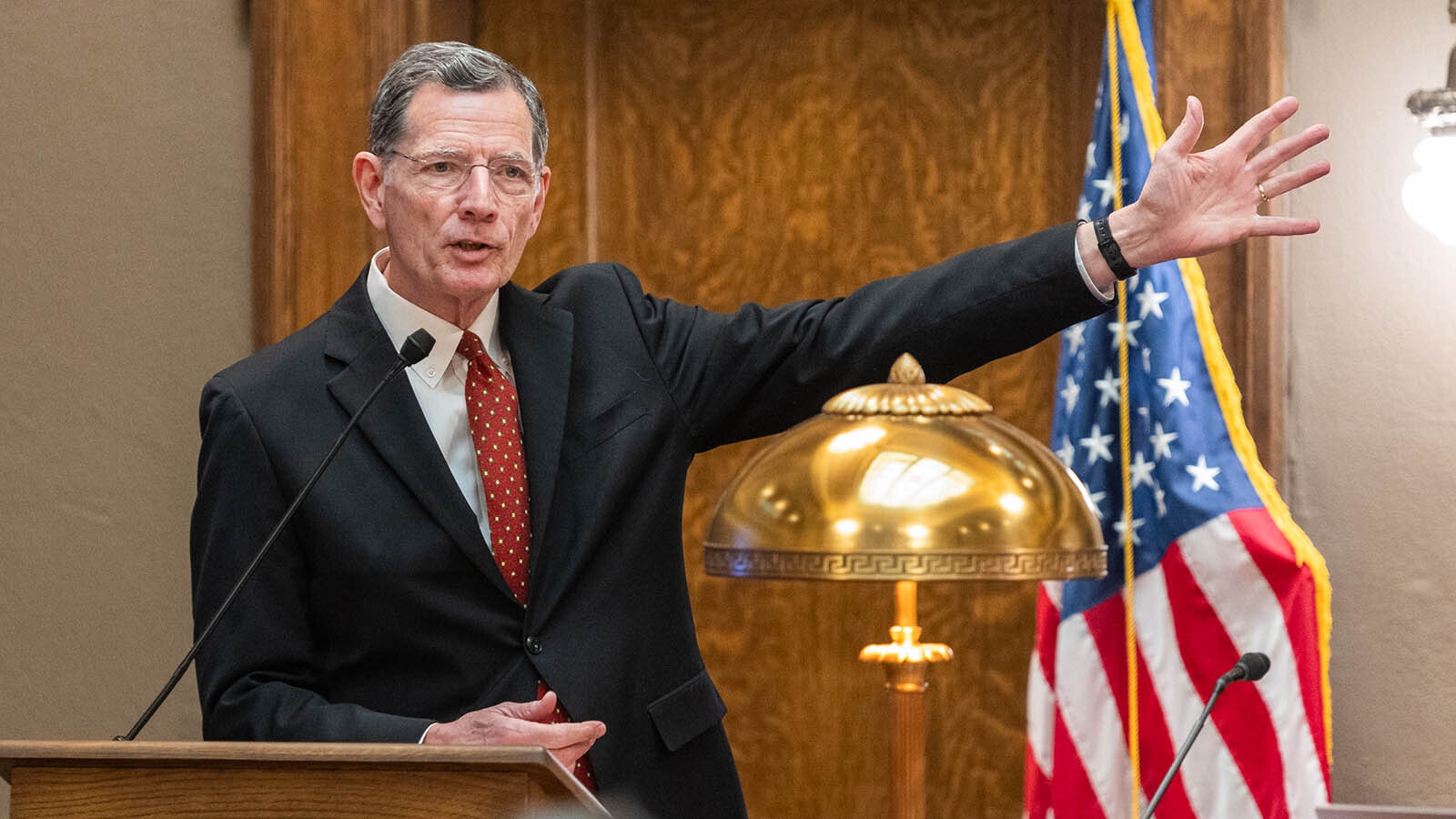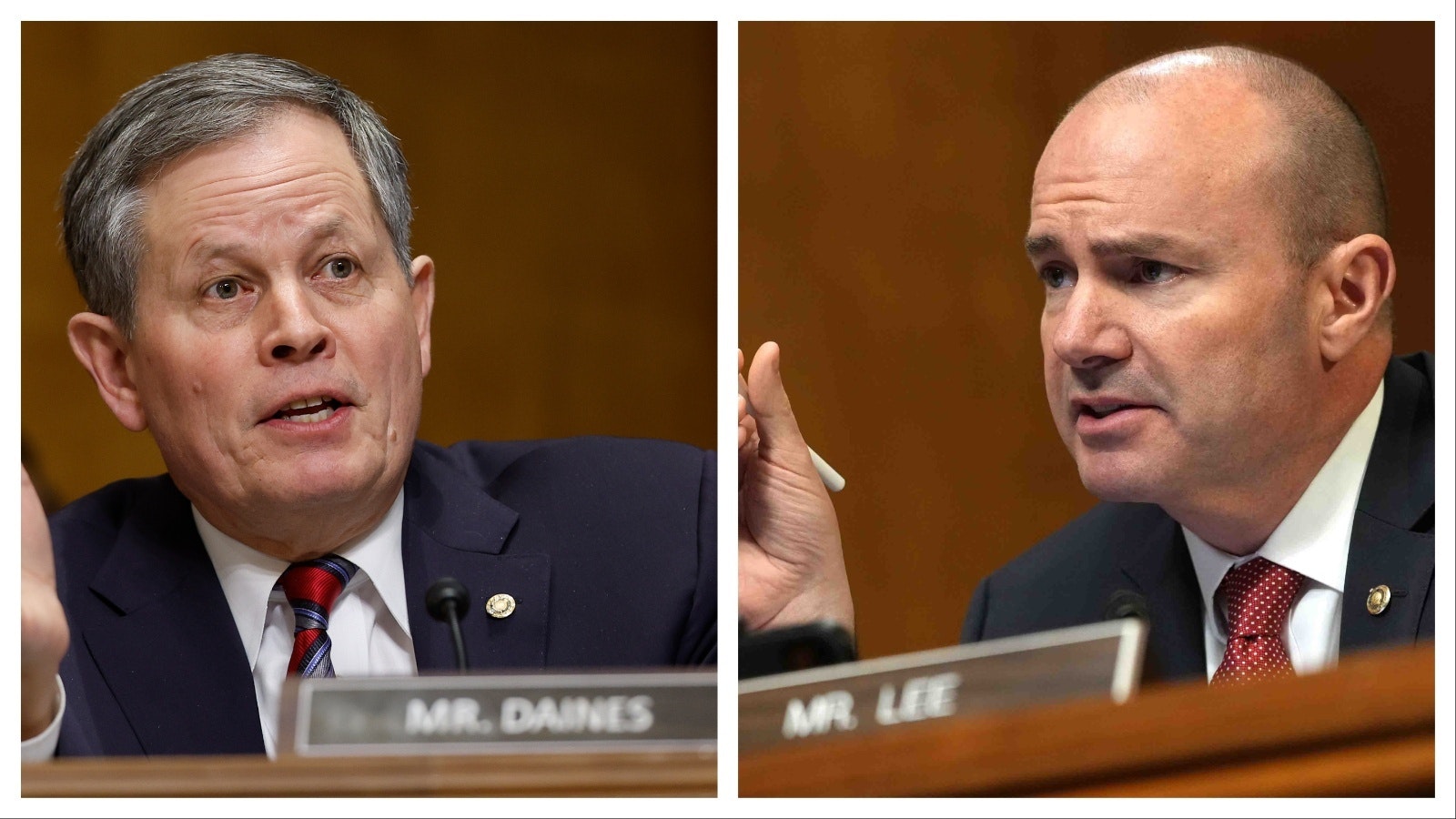U.S. Rep. Harriet Hageman says the debt ceiling deal that passed the U.S. House on Wednesday night doesn’t do enough to cut federal spending or take power out of Washington, D.C., and return it to the people.
“H.R. 3746 provides more deference to agency bureaucrats to make new rules, with the cost of those rules placed on the backs of private businesses and individuals,” she said in a press release.
Fighting against big government and “unelected bureaucrats” have become hallmark slogans for Hageman since taking office five months ago.
While serving on the Constitution and Limited Government and Weaponization of the Federal Government subcommittees, Hageman has targeted what she perceives to be an overreaching federal government under the direction of President Joe Biden.
She also has held 18 town hall meetings in Wyoming since January, where she said spending and government overreach on the part of bureaucrats in Washington are the biggest issues for Cowboy State residents.
Hageman said she received hundreds of calls from Wyoming residents on the debt ceiling legislation, officially known as the Fiscal Responsibility Act of 2023, with around 95% urging her to vote no on the bill.
McCarthy Factor
Hageman was one of 71 Republicans and 46 Democrats to oppose the legislation that passed on a 314-117 vote.
She joined members of the ultra-conservative House Freedom Caucus in opposing the legislation, the culmination of House Speaker Kevin McCarthy’s efforts to negotiate a deal with Biden.
Although Hageman said she appreciated McCarthy’s efforts and supports several components of the bill, she doesn’t believe it went far enough.
“The legislation fails to significantly reduce our national debt and does not do enough to rein in the administrative state,” she said. “We have very few opportunities and little time to gain control of the unsustainable debt facing our nation. It is imperative that raising the debt ceiling be coupled with more aggressive spending cuts and regulatory reform.”
As part of his election for speaker in January, McCarthy agreed to a rule change that allows Republicans to remove him at any time based on a single, simple majority vote.
Colorado congressman Ken Buck, also a member of the Freedom Caucus, said that McCarthy’s performance in the negotiations was highly disappointing.
“I’m not suggesting the votes are there to remove the speaker, but the speaker promised that we would operate at 2022 appropriations levels when he got the support to be speaker,” Buck told CNN. “He’s now changed that to 2023 levels, plus 1%. That’s a major change for a lot of people.”
Spending
According to a New York Times analysis, the Fiscal Responsibility Act will reduce federal spending by about $55 billion next year and another $81 billion in 2025, once it passes the Senate.
If approved, it will allow the federal government to borrow money until well after the next presidential election in 2025. This allows the government to delay paying its bills until that date and avoids the possibility the debt ceiling fight could spill into the 2024 presidential race.
The deal keeps non-defense spending flat with a 1% increase in 2025.
Hageman outlined four spending points in the act she has problems with:
- Establishes fiscal year 2023 as the baseline budget, thus failing to revert spending to pre-COVID-19 pandemic levels.
- Suspends the debt ceiling until 2025, enabling Biden and a divided Congress to generate an unknown amount of new federal debt.
- Includes waivable provisions that would only reduce spending against the Congressional Budget Office baseline by $1.5 trillion over 10 years.
- Leaves out the REINS Act, which offers major reform to the regulatory process and was included in a bill House Republicans passed in April that would sharply curtail federal spending.
What Next?
The debt ceiling bill moved on to the Senate on Thursday, where Wyoming Sens. John Barrasso and Cynthia Lummis will get to cast their votes on the legislation.
With a Democratic majority in the Senate, the bill is largely expected to pass with ease.
A spokesperson for Lummis told Cowboy State Daily on Thursday morning that she has submitted two amendments to the bill that would tighten its regulations.
The first is her Sustainable Budget Act, which would establish a bipartisan commission tasked with creating a plan to address the national debt and present ways to balance the budget over the long term.
The second would move up the debt ceiling suspension to November, giving Congress much less time to borrow money. This would also give Congress additional time to negotiate further spending reforms and cuts with the White House while ensuring the country can meet its fiscal obligations.
A spokesperson for Barrasso told Cowboy State Daily this week that he’s still considering the legislation.
Contact Leo Wolfson at Leo@CowboyStateDaily.com





